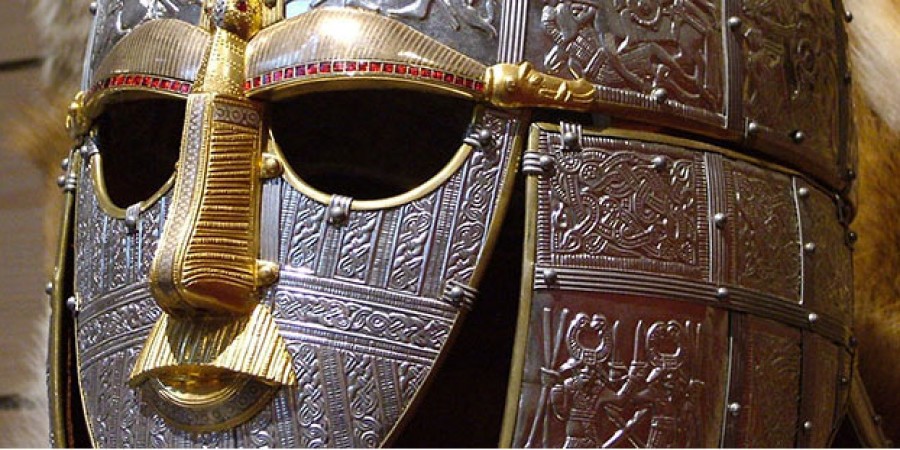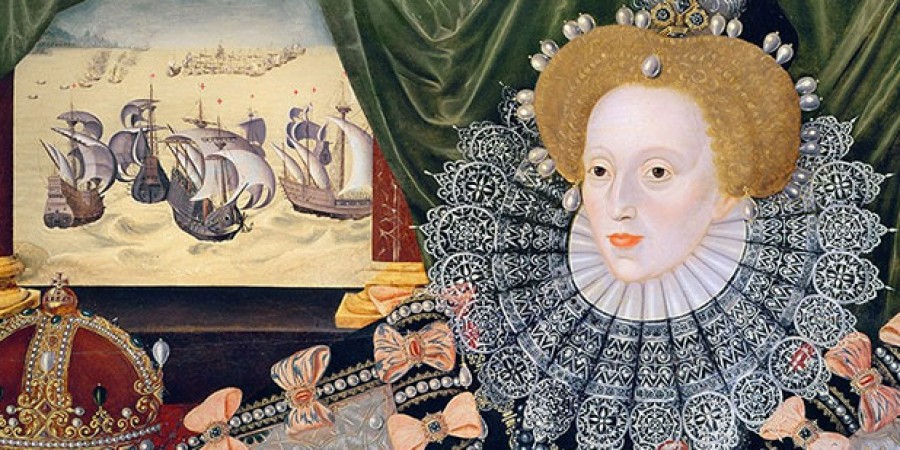History
‘By studying the past we prepare for the future’.
This usually means that by studying the past mistakes of individuals and countries we can avoid the same mistakes in the future.
However, it also means that by studying History, not only do we learn about people, events, cultures and societies from the past, we can also learn skills crucial to own futures- from the ability to think for ourselves, analyse the information we research and communicate clearly and effectively.
And most importantly, ENJOY the journey.
Year 7 History
Students in Year 7 will follow three main topic areas that will help develop knowledge, source skills and written communication.
Making a Historian:
Pupils will become ‘History detectives’ and be able to articulate the importance of studying History.
On the journey they will develop their knowledge of chronology (time order) and how to investigate a source with a critical eye - is it truthful? How can we tell if we can trust a source?
They will also be introduced to the skill of assessing historical significance.
Raiders and Invaders:
Pupils will develop a a knowledge rich understanding of the early invasions of Britain, the Saxons, the Norman Conquest and its lasting impact on our island nation.
What in our daily life can we trace back to that fateful day in 1066?
Medieval Realms:
Students will look at events that shaped Britain between 1000-1500 including the Feudal System, the Black Death, the growing power of the Catholic Church and the inevitable struggle for power between the monarch and the Church for the hearts and minds of its people. Pupils will also get the chance to undertake a personal ‘Enquiry’ into an area of Medieval Life that interests them.
Enrichment Opportunities:
Year 7 students also get the opportunity to visit the capital in all its cultural glory. Students stay the night aboard the famous HMS Belfast and learn about its importance in the war.
They also visit the Tower of London and London Dungeons learning about Tudor laws and punishment, as well as the development of crime and punishment throughout England – both of which aid their learning of these topics studied in much more detail in Year 8.
History in Year 8
Students in Year 8 will study a wide range of topic areas based upon Britain and her relationship with the wider world. They will look at how Britain underwent seismic changes in both religion and industry from the 15th to the mid18th Century, and how this arguably led to Britain’s control over vast areas of the world’s continents.
Tudor England
Students will analyse one of the most famous royal dynasties that Britain has ever seen. They will cover from humble beginnings with Henry VII to the ‘Gloriana’ end of Elizabeth I. Their primary focus will be on the reasons why Henry VIII ‘broke with Rome’ and the implications this had on the ordinary people of England. They will analyse historiography and be able to summarise academics’ work and writings on the recently discovered ‘King in the carpark’ as well as dispelling the myth of ‘Bloody Mary’ and why in reality she was no more gruesome than any other Tudor monarch of that time.
The unit will end with evaluating the reasons behind the Spanish Armada and how a tiny island could defeat the world’s greatest empire.
The Witch craze of the 16th and 17th Century
From the early decades of the 14th century until 1650, continental Europeans executed between 200,000 and 500,000 witches, 85% or more of whom were women.
Students will analyse factors that led to widespread persecutions including religion, a lack of knowledge and fear of the unknown.
Trade and Empire:
Students will analyse the reasons for the Industrial Revolution and start to assess its impact on the wider world including the Atlantic Slave Trade and the emergence of the British Empire.
They will also study a mini unit on the ‘evils’ of social change and evaluate the social impact of the Industrial Revolution.
Was it perhaps partially responsible for the emergence of Britain’s most notorious serial killer, Jack the Ripper?
American Civil Rights Movement:
Slavery was officially outlawed in America in 1865 but this was far from the end of it. It would take many years and a great struggle to see black Americans treated in the same way as white Americans. Students will look at key people and key events that all contributed to black Americans gaining civil rights within American during this turbulent time. Key areas studied will include:
- Martin Luther King’s ‘I have a dream’ speech – why was it so monumental?
- Little Rock Nine – why were children hated for wanting an equal education
- Martin Luther King and Malcolm X – who contributed most?
History in Year 9
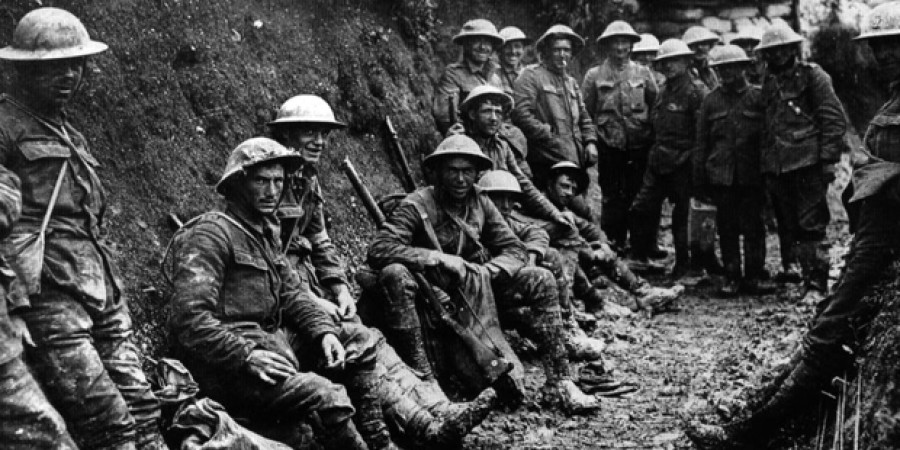 Soldiers of the Royal Irish Rifles at the Somme in 1916
Soldiers of the Royal Irish Rifles at the Somme in 1916
The 20th Century World
Students will evaluate key events of the 20th century and look at their impact on society as well as the wider world.
With so much war and bloodshed, they will evaluate the concept as to whether the 20th Century really is the darkest century so far!
World War One
‘The real reason was it was too much effort not to have a war…’
We will look at the volatile situation that was Europe in 1914 and make a judgement on whether the war was inevitable.
Students will analyse the four MAIN (militarism, alliances, imperialism and nationalism) causes of World War One and decide which was the biggest factor.
They will look at the concept of propaganda leading the conscription and see the harsh realities of trench life.
They will summarise by evaluation the Treaty of Versailles and decide whether it was signing the fate of a future world war.
Economic Boom in 1920’s America
Was it really a ‘golden age’ for everybody?
Student will look at post-war America and gain an understanding of the factors that allowed the American economy to boom.
They will look testimonials of a variety of workers, immigrants, farmers and business owners, leading to a decision as to whether this was a ‘golden age’ for all people.
They will look at the Wall Street Crash and see the impact this had on all Americans.
They will finish the unit looking at the propaganda for the prohibition movement and evaluate how the rise of the gangster led to its repeal 13 years later.
The Rise of Hitler and the Holocaust
‘Work means Bread’
A simple yet effective slogan that led to the rise of one of the world’s most memorable dictators. With Hitler being regarded as one of the most evil men in history, how was it that he had a nation captivated and willing to go to world war again, to spread his empire.
Students will look as the economic crisis that ensued post -World War One and understand the concept of hyper-inflation.
They will see the way that the Nazi party was able to ‘dehumanize’ the Jewish people, leading to one of the biggest atrocities that has ever fallen on this earth.
Student will learn about the experiences of the Jewish people within Auschwitz and understand why we must never forget the Holocaust.
History in KS4 - Years 10 & 11
‘People who study history are fearless explorers of the past. They investigate past politics, societies, cultures, languages, health, art, education, money, conflicts and more, look at how things have developed over time and connect the dots to understand how we got where we are today.’
Hindsight is a wonderful thing! It would be great if we could know what was going to happen after making big decisions in life, and studying History might just help us achieve that!
By analysing past events we learn about the consequences of people’s actions, from Kings and Queens, to medical pioneers. History is not just about the past, but can in fact help predict the future. Learning from past mistakes helps governments and businesses make better choices, for example economists work with politicians to avoid future economic crashes.
We can always understand life better when we see the bigger picture. In History we look at many sources and learn that often events have very complexed causes. Politics, communication, beliefs, misunderstandings and even the environment can shape the way things turn out. It allows us to have a more balanced outlook on the world and can also be incredibly inspiring. Don’t ever think that you can’t change something. There are many people who have achieved the greatest of victories again the odds and made huge changes over time. In History at Budehaven we want you to be inspired and have motivation to go and succeed for yourself.
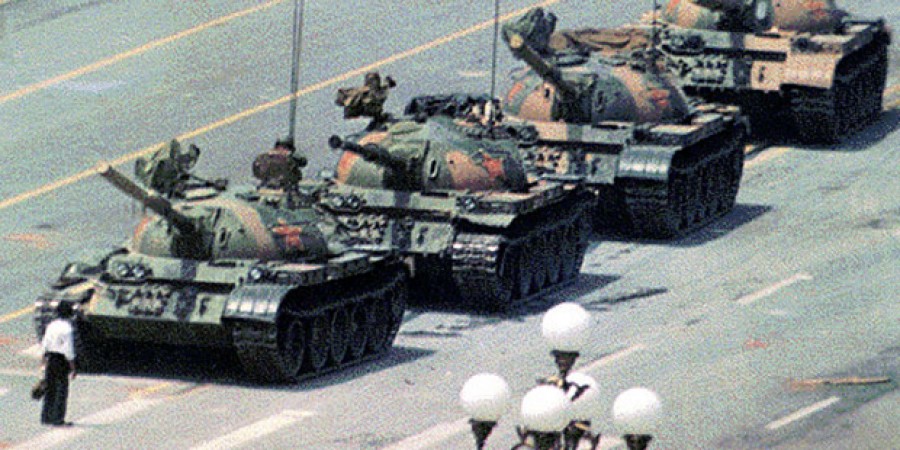
Tiananmen Square Protester - 1989
Studying History gives you lots of skills and teaches you to ask two very important questions; how and why. You will gain lots of important skills, from critical thinking and analysis to communication, problem solving and essay writing.
History also leads to loads of careers. With your highly developed analytical and detective skills, you’ll be primed for many roles including law, politics, marketing, journalism, teaching, insurance and economics.
So what do we learn?
Exam Board: AQA
Specification: https://www.aqa.org.uk/subjects/history/gcse/history-8145
Units studied are:
Paper 1: Understanding the modern world - 1hour 45mins
• American Expansion: 1840-1895
• Conflict and Tension East meets West: 1945-1972
Paper 2: Shaping the nation - 1 hour 45 mins
• Health and The People in Britain 1200-modern day
• Elizabethan England 1568-1603
Google Classroom Link: https://classroom.google.com/u/1/w/MTc1OTI4ODc4MjJa/t/all
